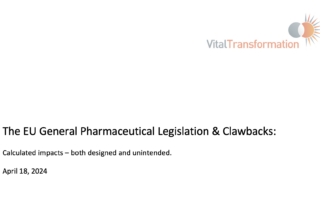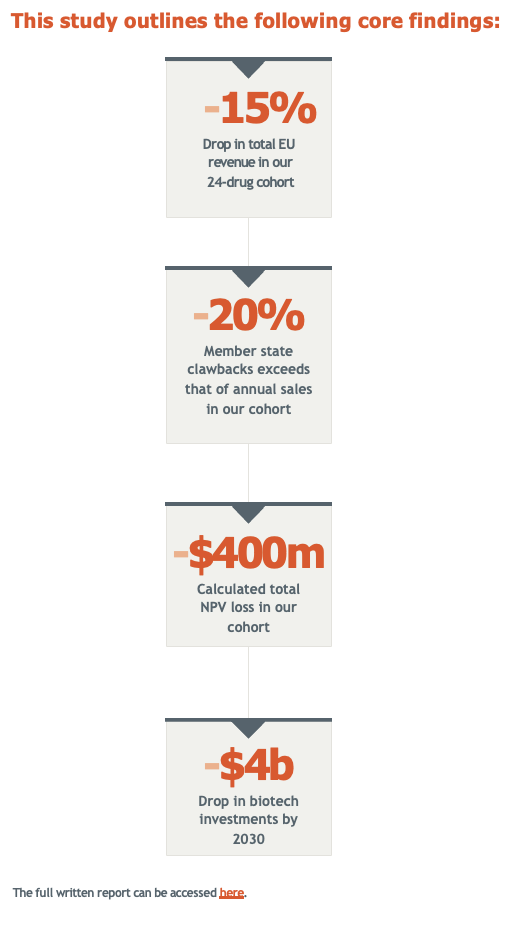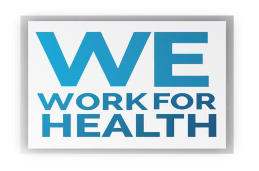Vital Transformation is a small, unique consultancy focused on addressing the challenges of today’s modern healthcare system. We partner with your organisation to help you find answers to hard to solve problems.
Contact us to learn how Vital Transformation can help your organisation.
LATEST RESEARCH
LATEST COMMUNICATIONS

Our Communication Services
In this episode of the Vital Health Podcast, host Duane Schulthess speaks with Tim Scott, President & CEO of Biocom California, a biopharma executive with more than two decades of experience, including spinning out companies from UC San Diego and leading firms acquired by BioMarin and Novartis, to discuss how California’s life sciences ecosystem became a global innovation engine, why the state’s research and venture networks matter, and how policy headwinds such as the Inflation Reduction Act (IRA) and Most Favored Nation (MFN) reference pricing reshape investment, rare disease development, and competition with Europe and China.
Find all our communication projects on Better Science, Better Health
MORE RESEARCH
PREPRINT NEW RESEARCH: The Inflation Reduction Act’s Impact upon Early-stage Venture Capital Investments
Vital Transformation is preparing a new analysis about the impacts of the Inflation Reduction Act on biopharma investment, research and development in the two years since the law’s passage. Early returns show significant harms to innovation and patients’ treatment options, particularly because of the IRA’s small molecule “pill penalty.”
The Impact of The House Proposed IRA Expansion on the US Biopharma Ecosystem
Vital Transformation (VT) modeled the impacts of the drug pricing provisions of the Inflation Reduction Act, with the expansions proposed by Representative Frank Pallone, Jr. (NJ-06) called the, “H.R. 4895: Lowering Drug Costs for American Families Act”, which would impose government price setting for up to 50 selected Medicare Drugs starting in 2029 and expand those negotiated prices to the commercial market.
We modeled the impacts on industry revenues, future R&D investments for the Medicare aged population, and lost innovation including industry jobs.
We estimate a loss of 136,000 – 216,000 direct biopharmaceutical industry jobs and 678,000 – 1,076,000 indirect jobs across the U.S. economy if H.R. 4895 were to be implemented.
We estimate that the expanded government price setting could result in roughly 134 fewer FDA approvals of new medicines treating primarily the Medicare aged population over a ten-year period:
- Impacts will be felt most heavily in many areas of unmet need, including in rare disease, oncology, neurology, and infectious disease targeting those over 65 years of age.
- H.R. 4895 impacts the entire commercial market at the point of negotiated prices entering Medicare.
- The most significant ecosystem impacts would be concentrated primarily in CA and MA.
- Had the drug pricing provisions of the House Bill H.R. 4895 been in place prior to the development of today’s top-selling medicines, we estimate that 76 of the 198 therapies we identified as selected for Medicare price setting would likely have not been developed.
VITAL HEALTH PODCASTS
Our podcast series is also available via your favourite channels!
 |
 |
|---|---|
 |
 |
NEWSLETTER
Register now to receive all the latest updates from Vital Transformation including our research, podcasts and more…
VT on X
Claims that the IRA wouldn’t affect innovation overlooked how early-stage investors really make decisions. Our research shows the pipeline for senior-focused therapies is already narrowing.
— VitalTransformation (@VitalTransform) April 18, 2025
Read the full breakdown: https://t.co/4EzJGdMcU4@weworkforhealth #IRA #DrugPricing
The IRA’s 9-year cap for small molecules and 13-year cap for biologics rerouted investment away from the pills seniors rely on. We sat down with @steveusdin1 to unpack how this shift skews R&D incentives and future therapies.
— VitalTransformation (@VitalTransform) April 27, 2025
Listen here: https://t.co/FCjKFdIhsU@weworkforhealth pic.twitter.com/phoDI4ZrhK
Our clients include many of the world’s leading health care organisations.



























